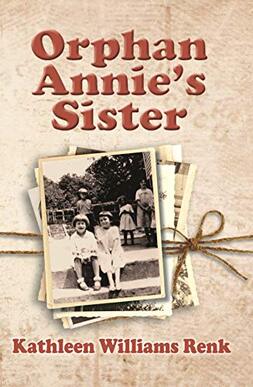|
Lizzie and her twin, Annie, are only five in 1928, when their Bohemian immigrant mother, their matka, dies of a stroke at age 39 after giving birth to ten children. Their papa, Dmitri, leaves Lizzie and Annie, along with two older siblings at the Hessoun Orphanage, the “Home” run by strict Czech nuns and dedicated to educating and bringing up Bohemian children to their "stations" in life. Although identical twins, Lizzie and Annie are opposites in terms of temperament and behavior. Annie is the saintly sister who believes that her Guardian Angel protects her; Lizzie is the mischievous twin who frequently gets reprimanded and punished by the Mother Superior, Sister Gustava. Lizzie questions everything and wants more than what "fate" intends for an Eastern European immigrant child. She wants to be a doctor, an aviator, or an athlete but her biggest and most immediate goal is to find a way for her and Annie to escape from the Home and return to their papa’s house, because the Home is far from being a true home.
ORPHAN ANNIE’S SISTER, based on the author’s mother and her twin’s lives, follows Lizzie’s life when she is ten during one year of the Depression, while interweaving local, national, and international news. Written as a journal addressed to her matka, her mother, this historical fiction novel reflects Lizzie’s struggles to be an obedient child, as she comes to terms with what home means when you have no mother and your father has “orphaned” you. Lizzie wants far more than what “fate” has allotted her and she questions much of what she’s been taught in her religious and ethnic upbringing. As she writes to her mother, she insists that she is an American, not a Bohemian child, and she discovers that she resembles the “freethinkers” in Bohemia who rebelled and broke away from the Catholic Church. Pre-teen readers of historical fiction will love ORPHAN ANNIE’S SISTER. ISBN: 978-1693375996 Pages (pb): 159 $7.99(pb). $5.99 (eb) |
PRAISE
Reviewed in the United States on June 10, 2021
This is a compelling story, not only for young readers, but for readers of any age. Kathleen Williams Renk has crafted a heartwarming, somewhat fictionalized version of her own mother's real-life experience at an orphanage beginning in 1928. The narrative progresses through a series of journal entries, written by our young narrator Lizzie, in the form of imaginary, confidential conversations with her deceased mother. In the diary, Lizzie expresses the secret, rebellious thoughts that she dares not share openly with the strict Czech nuns who run the orphanage with an iron hand, while trying to protect her disabled twin sister. In the telling of the tale, Ms. Renk has skillfully imagined the mind and emotions of this motherless, displaced child and translated her harsh experiences into a sensitive and deeply moving narrative. At the same time, the author manages to avoid an overly-sentimental approach to Lizzie's (and Annie's) ongoing traumatic-childhood experience, instead granting both characters a sense of dignity, strength, and self-determination unencumbered by easy cliches. Readers of all ages will find themselves caught up in the story of this very determined young girl who, in spite of tremendous odds, manages to prevail and discover her own truth in the process. There are also important messages in this book about the power of imagination and writing; and how the memory of love (or our loved ones) can help sustain us through the worst of times.
Reviewed in the United States on June 10, 2021
This is a compelling story, not only for young readers, but for readers of any age. Kathleen Williams Renk has crafted a heartwarming, somewhat fictionalized version of her own mother's real-life experience at an orphanage beginning in 1928. The narrative progresses through a series of journal entries, written by our young narrator Lizzie, in the form of imaginary, confidential conversations with her deceased mother. In the diary, Lizzie expresses the secret, rebellious thoughts that she dares not share openly with the strict Czech nuns who run the orphanage with an iron hand, while trying to protect her disabled twin sister. In the telling of the tale, Ms. Renk has skillfully imagined the mind and emotions of this motherless, displaced child and translated her harsh experiences into a sensitive and deeply moving narrative. At the same time, the author manages to avoid an overly-sentimental approach to Lizzie's (and Annie's) ongoing traumatic-childhood experience, instead granting both characters a sense of dignity, strength, and self-determination unencumbered by easy cliches. Readers of all ages will find themselves caught up in the story of this very determined young girl who, in spite of tremendous odds, manages to prevail and discover her own truth in the process. There are also important messages in this book about the power of imagination and writing; and how the memory of love (or our loved ones) can help sustain us through the worst of times.
